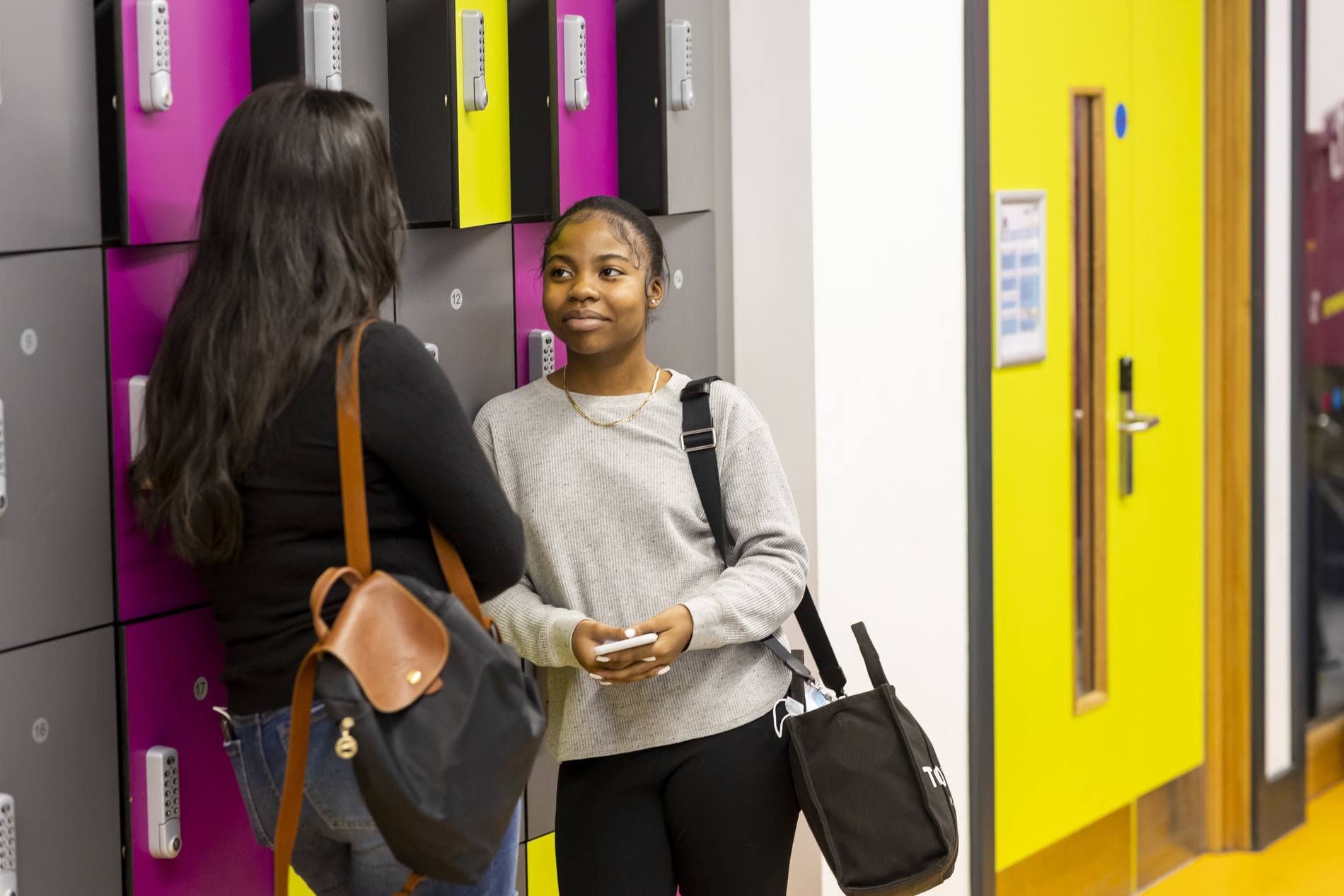Work experience
Work experience is a great gateway to getting a job. You’ll be able to get a feel for what the field you’re interested in looks like and gain some valuable contacts along the way. Read on as we explain how to find work experience places and the benefits of doing work experience.

Benefits of doing work experience
There are loads of benefits to doing work experience. Even if it’s not the kind of work you want to end up in, it’s still something to add to your CV which will be super helpful when you’re finding work. Plus, it looks more impressive than your 25m swimming certificate and provides a better referee than your fav A-level teacher. You’ll also learn invaluable skills while you experience the world of work, such as teamwork and communication. And these’ll come in handy down the road since most jobs require them.
Does work experience lead to a job?
It’s never guaranteed, but if you show the right enthusiasm and determination, your placement might well turn into a part time or full time job with an actual salary. Graduate Prospects recently reported that 73 % of employers have, at some stage, recruited people working for experience as permanent staff. Additionally, 62 % say it’s their main reason for taking on work experience candidates. So the odds are ever in your favour.
How to get work experience places
We’re sure now that you’ve heard all the AMAZING benefits of doing work experience, you’re ready to go out there and get some work experience places. So here are some work experience ideas:
- Send your CV and a short covering letter by post or e-mail. Then follow up with a telephone call. You can see our article with some tips for how to write your CV here.
- Always address your mail and phone call to the right person – either the department head or personnel or human resources officer (if you’re unsure, ring the switchboard and ask). It’s crucial to get this right cause if the mail is addressed to no one, it’s likely no one will reply.
- Take advantage of work experience programmes offered at/by your local school, college or universities.
- Don’t be afraid of networking. It’s surprising how many friends and family will know someone who knows someone who could offer you an opportunity. If the thought of talking to people in order to get work stresses you out, we’ve got some networking tips here.
Will it affect my benefits?
If you’re claiming Jobseeker’s Allowance (JSA) or Universal Credit and apply for work experience through Jobcentre Plus your entitlement to benefits will be protected. The Kickstart scheme also means that some previously unpaid work experience opportunities are now funded. So you may actually be better off in some cases.
If you apply through Jobcentre Plus, work experience can last between 2 and 8 weeks. This means that you’ll normally be expected to work part-time between 25 and 30 hours a week for the duration of your work experience. And you’ll carry on getting your JSA or Universal Credit payment as long as you continue to look for work.
Keep in mind that not all businesses that offer work experience go through Jobcentre Plus. Some might want a full-time commitment. In which case, claiming benefits whilst doing a placement like this may affect your entitlement to benefits. You can find out more about universal credit here.
Making the most of your time
Always try to make the most of your placement, even if it doesn’t exactly align with your chosen career path. Dress well and be keen and polite; don’t panic, you can dress down later if everyone else does. Simply follow the social customs of the office and don’t be afraid to ask questions.
Yes, the company are doing you a favour, but that doesn’t mean you should be working 24/7 or just being told to make tea for the office. It should be a learning experience where you gain skills and develop your abilities. If it isn’t, it might be worth speaking up, as graduate Luke found on a placement at a TV company. “The first few days were great, then they moved me to doing repetitive, boring work – in a different building.”
After agonising over what to do, Luke asked to move back. “At first I was worried that I’d made a mistake,” he says. “A manager even told me off. But I explained it was costing me a lot of money to get there every day. And I was stuck doing something that wouldn’t help my career in any way. It didn’t seem fair.”
Keep the names and contact details of anyone you meet. After you leave, remember to give them short updates on what you’re up to, especially if you do anything significant. You never know, they could prove to be useful contacts later on. They might even end up giving you some careers advice.
What can go wrong?
The benefits of work experience definitely outweigh the cons, but that doesn’t mean things can’t go wrong. In fact, the National Council for Work Experience (NCWE) has found that 39% of businesses admit to taking on people for work experience just to finish specific projects. And 19% admit to using them to cover busy periods. To avoid this happening to you:
- Ask the company to explain exactly what the placement will involve
- Don’t end up paying out of pocket. Be sure to establish what expenses they’ll cover and save tickets and receipts. A lot of companies will pay for travel expenses
- Know your rights. Ordinary labour laws cover those doing work experience over 16; under 16s get more stringent protection
- The NCWE has a code of practice. They encourage employers to maintain good safety standards, provide an educational opportunity and offer feedback
Although companies don’t have to pay you for doing a work experience placement, the NCWE encourages it. Especially if you’re working for a long period, which is common in popular industries such as media. And If you’re treated like any other staff member, rather than a mentee, you might have grounds to ask the company for payment.
Next Steps
- Chat about this subject on our Discussion Boards.
By Nishika Melwani
Updated on 08-Jun-2022
No featured article













